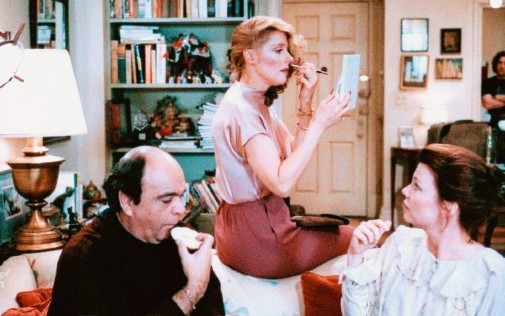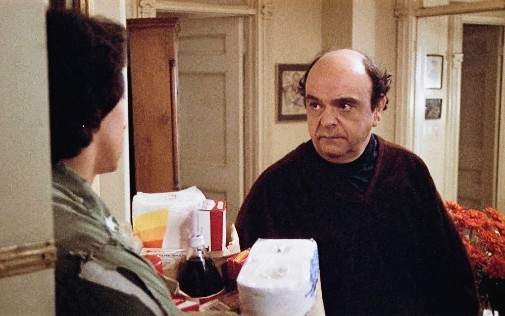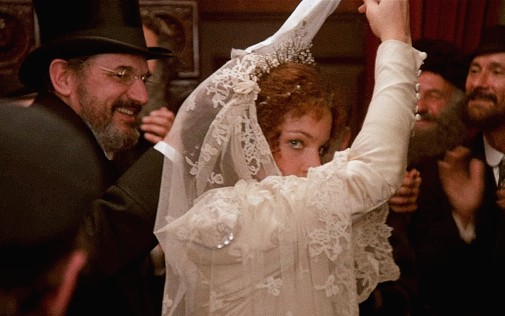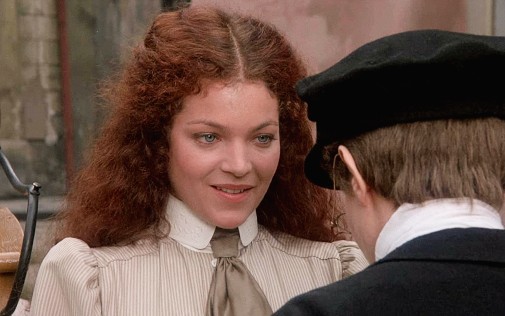
Founded by Mo Murphy and John J. B. Wilson, the Golden Raspberry Awards, more commonly known as Razzies, are the evil twin to the Academy Awards. Instead of celebrating the best achievements in world cinema, they award the worst, ridiculing them in the process and daring anyone to go accept their gold sprayed statuette in good humor. They've been handed out since 1981 when Xanadu and Can't Stop the Music battled out for the title of Worst Picture. Since then, the Razzies have made many controversial choices, showing an especially troubling fondness for lampooning female-centric stories or examples of campy entertainment.
Today we'll be talking about two instances when the Oscars and the Razzies tastes diverged so much they ended up nominating the same performances…

Both of these strange occurrences happened in the early years of the awards. James Coco holds the dubious historical distinction of being the first actor to be nominated for the Razzie and the Oscar, getting nods for both Best and Worst Supporting Actor of 1981. The movie that earned the actor this double infamy was Only When I Laugh which will be discussed on the Supporting Actress Smackdown later this week. Because of that, I'll avoid speaking about the picture itself.
Coco gives life to that most annoying of token characters, the gay best friend. He's Jimmy, a flamboyant middle-aged actor whose repartee with his best friends consists mostly of mediocre shade that's neither funny nor witty. Taking their cues from the sitcom-like text, most of the actors ham it up with one notable exception. Unfortunately, that exception isn't James Coco, whose Jimmy is a cartoon played with utmost broadness and nothing in the ways of subtlety.
I wish I could defend him, but if I had to choose between giving the actor an Oscar or a Razzie, I'd choose the fruit-themed trophy. Not that he deserved either of those. While the performance may be a mugging mess, it is a natural consequence of the character as it is written. Going deep in this instance would be like diving headfirst into a kiddy pool.

Fortunately for us, the second person to achieve this paradoxical double honor was closer to earning the little golden man than the foul berry. She's Amy Irving, who, in 1983, secured herself a place in history thanks to Barbra Streisand's Yentl. The picture is a lush musical about the titular Rabbi's daughter (played by Streisand) who, in 1904's Europe disguises herself as a boy to gain admission to a religious school. Irving is Hadass, a young Jewish girl whose pleasant demeanor and conventional beauty exist in stark contrast to Yentl's utter lack of conformity to society's expectations.
Together with Mandy Patinkin's handsome Avigdor, Yentl and Hadass form an unlikely romantic triangle. She loves him, but he loves the other, who marries him, but he's actually her, and so forth. It's a complicated game of duplicity that, surprisingly enough, doesn't seem half as convoluted when it's playing out. Part of that is due to the way each actor exteriorizes their characters' wants so clearly, even though only Streisand has the benefit of musical interior monologues. To balance it out, the actress/director shoots her costars with loving care, letting their faces illuminate the screen with silent expressions that say much more than a thousand words ever could.
Irving's Hadass is a figure of particular fascination, both for Streisand's camera and Yentl herself. She appears to be a vision of perfect conformity to gender expectations, but there's always a sense of anxiety tainting her presence. One feels that Hadass yearns to please the men in her life but is still plagued by an eternal fear of disappointing them. She's the poster child for girlish obedience but even she struggles to live up to that role. A pivotal plot point is how Hadass' affections shift from one man to another, but such developments don't feel forced thanks to Irving having planted the seeds of unrest since the beginning.

She blossoms before our very eyes, playing a mature emotional connection that contrasts with her earlier infatuation. Such is the earnestness that Irving brings to these sentiments that Hadass' unavoidable heartbreak becomes the force that propels the film towards its conclusion. With all that said, that Razzie nomination is an undeserved insult like so many of their "honors" are. There's also the fact that these actors' spotlighted roles, a gay sidekick and a symbolic commentary on gender expectations, reflect rather poorly on the whole institution, pointing to some ugly prejudices that haunt the Razzies to this very day.
Do you think either of these performances should have been up for the Oscar or Razzie?